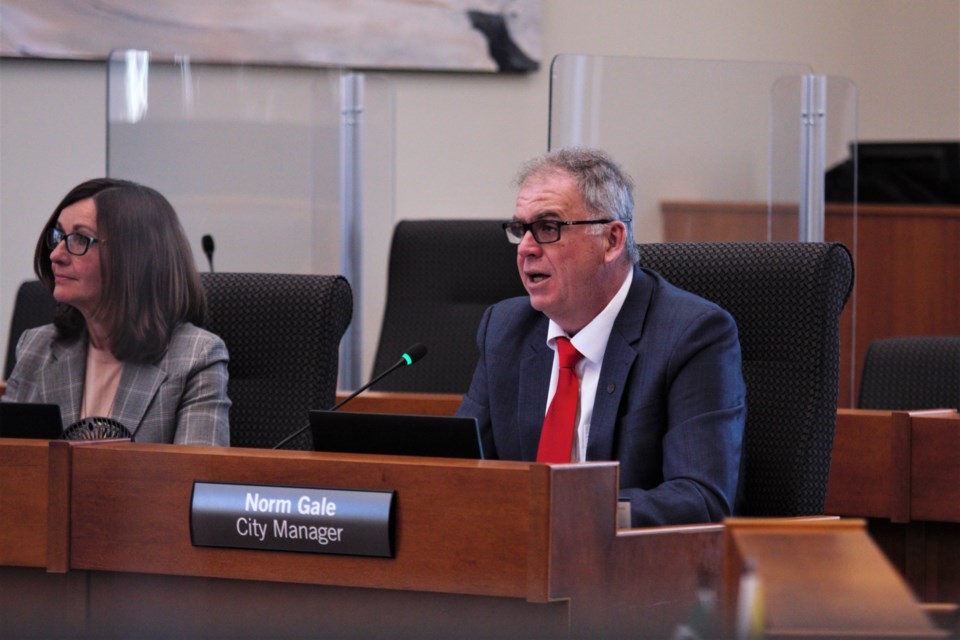THUNDER BAY – The City of Thunder Bay posted a historically high surplus of nearly $11 million in 2021, prompting a failed push at city council to explore returning some of those dollars to residents.
Final financial results for 2021 presented by staff Monday showed the city finished the year with a $10.9 million surplus in its tax-supported operations, amounting to 4 per cent of its net budget of $273 million.
The windfall will be used to replenish a number of reserve funds, with $6 million going to the general capital reserve, $2.2 million to the stabilization reserve, $1.9 million to the winter roads reserve, $700,000 to the legal fees reserve, and $100,000 to an event hosting reserve.
A number of councillors called that strategy into question Monday, arguing at least part of the unusually large surplus should be somehow returned directly to tax payers.
The $10.9 million tax-supported surplus is the biggest in at least 13 years, said city treasurer Linda Evans.
The city has posted annual surpluses of between $1 million and $5.6 million since 2016, levels city manager Norm Gale called “healthy.” The city posted small deficits in each of the four years before that.
Administration aims to produce small surpluses of less than 2 per cent of its net budget, or around $4.75 million, Gale told councillors.
“A variance of 2 per cent or less reflects an accurate and appropriate budget, and also strong financial leadership from city council, the executive management team, and the leaders of the corporation of the City of Thunder Bay,” he said.
Staff also emphasized just over half of the surplus resulted from a reduction in losses from tax assessment appeals.
With those losses declining significantly since 2019 due to new provincial policies that have led to more appeals being withdrawn or dismissed, the city adjusted its provision for tax write-offs downward by around $5.5 million.
That makes the large surplus an “anomaly” council needn’t be overly concerned about, said Mayor Bill Mauro.
Coun. Trevor Giertuga took a more cynical view, arguing the city’s habit of multi-million dollar surpluses amounts to overcharging residents for services in order to “pad” its reserves.
“There’s always a reason – administration every year has reasons why we have a [surplus],” he said. “I’ll support giving some back to the residents, or putting it all toward… roads and our infrastructure gap.”
Coun. Rebecca Johnson agreed, moving to solicit a report on ways the city could return some or all of the surplus to tax payers, rather than approving its distribution into reserves.
“This [surplus] is huge, and to me that’s not acceptable for the people that are out there right now who are having a hard time even putting milk on the table,” she said.
“I don’t believe in just giving a cheque to somebody, I don’t think that’s necessary,” Johnson added, but said other means like a tax reduction should be explored.
The idea is unorthodox and potentially challenging to implement, Evans said.
“That is not a process I’m aware of other municipalities carrying out,” she said. “It would be quite difficult administratively to process, and I’m not sure our system would even be able to accommodate that.”
Coun. Kristen Oliver argued it would make more sense to use the surplus to offset future tax increases, warning surging inflation will make for an “ugly” budget process in 2023.
Coun. Mark Bentz similarly suggested the surplus wasn’t so large when taking into account the city’s financial challenges.
“It’s nice to get a surplus, but I think we’re losing sight that the budgets that we pass are not adequate to do the work we need to do,” he said. “We have an infrastructure gap of over $20 million [a year], our debt-to-reserve ratios are not in good shape.”
Coun. Andrew Foulds said the idea of issuing rebates flew in the face of proper municipal budgeting.
“I’m not going to support a referral back to administration to look at options for a refund for exactly the same reasons that in years [when] we have a deficit, I wouldn’t support a motion that we ask tax payers for more,” he said. “I mean, that’s not how we do business.”
Johnson’s motion ultimately failed on a 6-4 vote, with Couns. Giertuga, Johnson, McKinnon, and You in favour, and Couns. Bentz, Foulds, Fraser, Hamilton, Oliver, and Mayor Mauro opposed.
Johnson and Giertuga later cast the only votes against allocating the $10.9 million surplus into reserve funds.
The city’s strategy will bring the winter roads reserve to $3.7 million. That’s likely to be drawn down significantly, with snow clearing operations projected to go $1.4 million over budget this year.
The stabilization reserve, which the city typically uses to cover unanticipated losses, will be topped up to $13.1 million.
The capital reserve will be replenished from $600,000 to $6.6 million.
The legal fees reserve will stand at $3.6 million, while the event hosting reserve was exhausted and will be brought to $100,000.
The city’s debt-to-reserve ratio still lags comparable municipalities, Evans noted.
“Our reserves are getting healthier over the last four or five years, but we’re still not at a one-to-one ratio where we’d like to be, which is something municipalities strive to achieve,” she said.
In addition to the surplus, the city will bank $3 million in leftover federal-provincial COVID-19 relief funds, which it can apply to pandemic-related losses in future years.
Rate-supported operations including water, wastewater, and landfill also produced a large surplus of $4.9 million last year, or around 8.5 per cent of the total rate-supported budget of $57.4 million. Those dollars will be put into rate-supported reserve funds.
